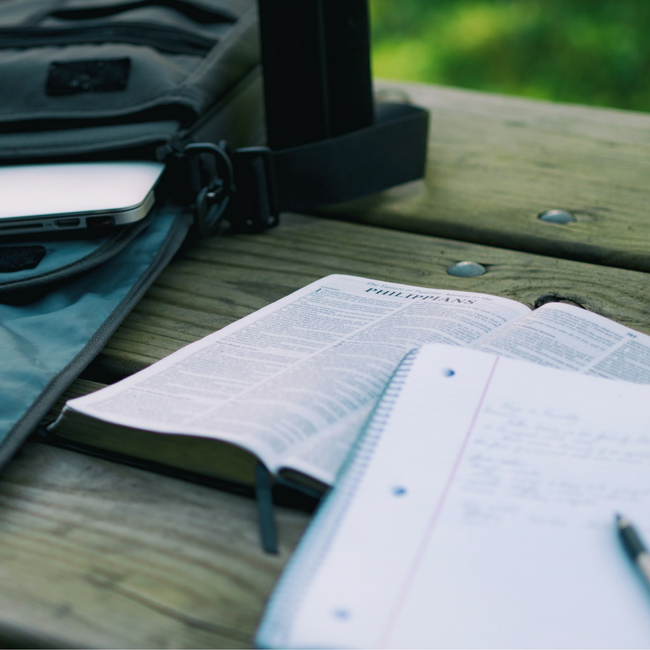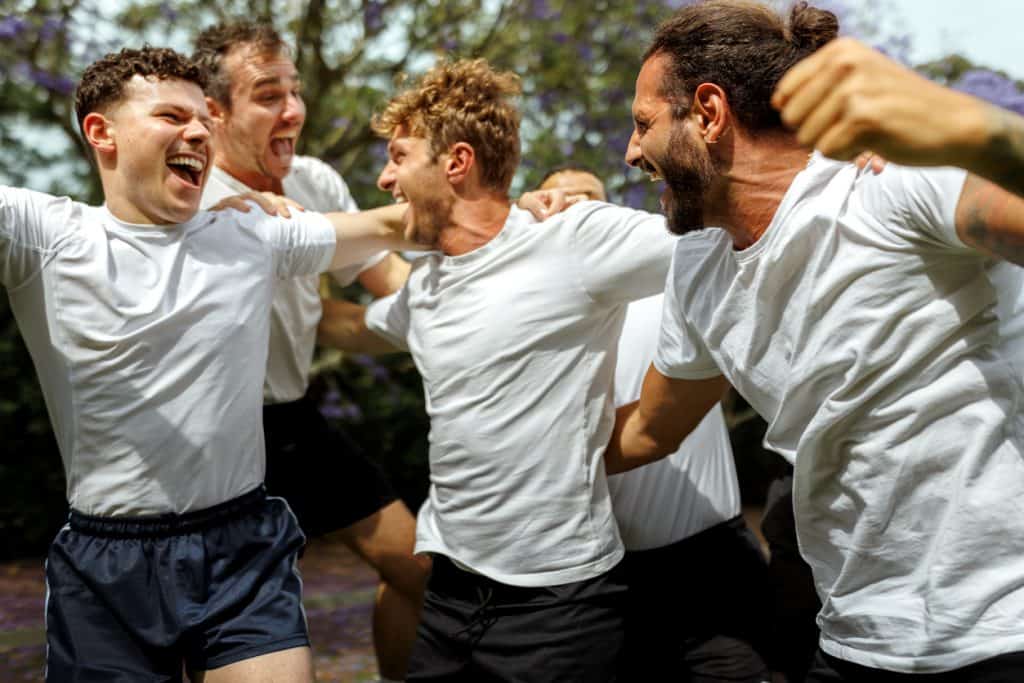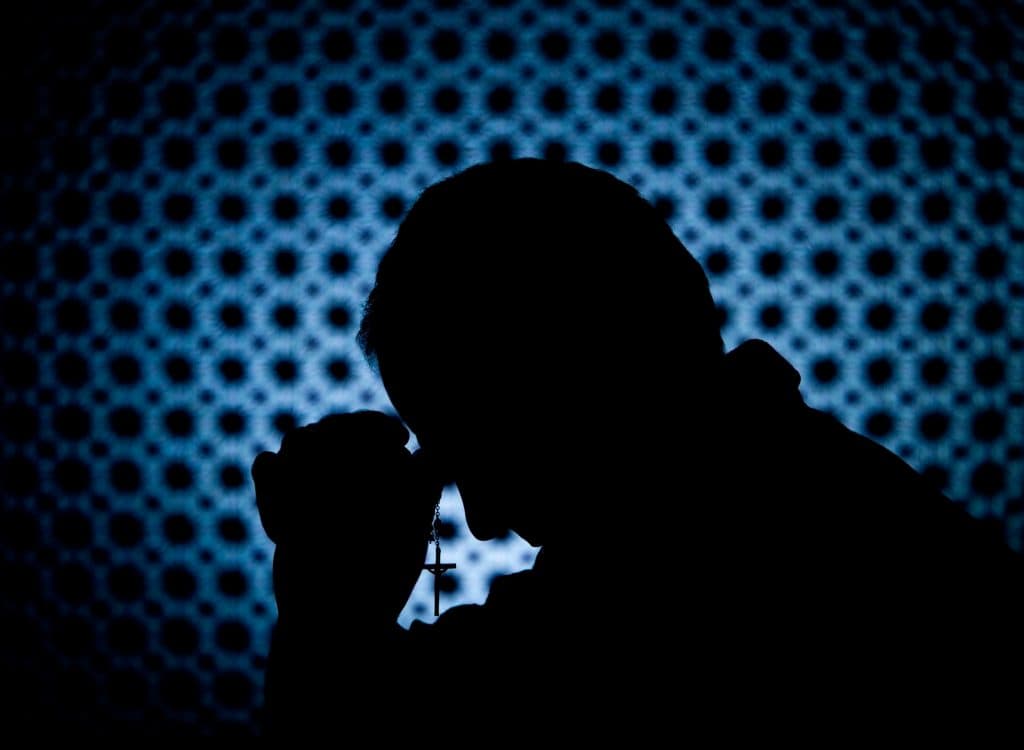After helping people overcome pornography for more than two decades, one thing has become clear: Defeating porn requires trustworthy relationships. Pornography develops a powerful grip on people that can’t be overcome in isolation. We need deep accountability relationships with people to walk with us on the journey.
But there’s a problem. Most people trapped by pornography have experienced deep emotional or relational wounds that make it difficult to trust people. And you can’t have an accountability relationship without trusting someone. So, how do you learn to trust people again after you’ve been hurt?
This article is based on a chapter from the ebook, Allied: Fighting Porn With Accountability, Faith, and Friends.
Trust Christ First
When we trust Christ, it means we’re no longer trusting ourselves or the image of ourselves that we want people to see. That takes humility. Pastor James Reeves shares his life-changing realization about trusting Christ:
“I was still trying to get through it in my own power without humbling myself to others. Sometimes our reaching out to God is not faith but an expression of our pride. We don’t want to humble ourselves before others, so we try to do it in secret, just between God and me.”
Reeves realized that true faith in Christ meant humbling himself before others and reaching out for help.
Pride is only part of it. Friendship with Christ is the model that we follow for accountability relationships. It’s this friendship that frees Christians to open up with one another about their struggles without fearing judgment. “There is no condemnation for those who are in Christ Jesus” (Romans 8:1).
Jesus also takes away guilt and shame. When we’re connected to Jesus, we can be ourselves without hiding. Even though there’s the risk of being judged by other Christians, this doesn’t shake our standing with Jesus. Paul said this in 1 Corinthians 4:3, “But with me it is a very small thing that I should be judged by you or by any human court. In fact, I do not even judge myself.”
Finding friends to trust is tough. Even the best accountability partners are deeply flawed humans. But we can have the confidence to pursue these relationships because of the one Friend who will never leave you or forsake you (Hebrews 13:5), the Friend who sticks closer than a brother (Proverbs 18:24).
Trust the Truth
For someone to voluntarily seek accountability, they must get to the point where they believe the truth is better than continuing in a fantasy. To have a meaningful accountability relationship, this mindset must be continually reinforced.
Nate Larkin speaks on this from experience: “Every addict perfects the ability to construct a convincing lie. The key, we soon learn, is to spin a plausible narrative and persuade ourselves to believe it. After we have lied to ourselves successfully, our efforts to persuade others carry the power of sincerity.”
Nate was a successful church leader, husband, and father. He had created a façade around his life that masked a deep bondage to sexual sin. He didn’t reach the point of trusting the truth until after his sin was exposed.
He says, “It was the worst day and the best day when my wife caught me. It felt like the end of the world.” Getting caught turned out to be the turning point for Nate. Once the light of truth shined into his secret life, it eventually lost its grip on him. The truth set him free (John 8:32).
Like Nate, some people only seek accountability after their secret life is exposed. Others come to this realization before getting caught.
Amy Riordan tells her story as a married Christian woman trapped by porn. When she realized living a lie was worse than coming clean, she decided to admit her struggles to her husband:
“Yes, I finally took that step of boldness, but I didn’t do it by myself. I believed and had to trust that the Holy Spirit was going to be there with me when I confessed this secret to my husband. I didn’t have the strength by myself to confess this to him, but I found the strength when I leaned on the Holy Spirit to help me. He was prompting me to tell my husband, so I knew He would be the one to give me the strength to do it.”
The Holy Spirit showed Amy that walking in the light would be better than living a lie (1 John 1:7) and that He would give her the strength to tell the truth.
Whether you’re seeking accountability for yourself or trying to help someone else, accountability means living in reality. It means looking hard truths square in the face, trusting that God can work them out for good (Romans 8:28).
Accountability means committing to truth and trusting that the truth will set you free.
Start Small
Learning to trust often begins with small acts of trust. For example, if you’re not very involved with a local church, learning to trust could mean simply attending regularly. If you already attend but lack deep relationships, join a small group or invite someone over to your house.
Even these small steps require trust! If you’re not used to this, it will be challenging. But this will make way for bigger steps, more openness, and vulnerability with people who can walk alongside you.
Learn to Identify Trustworthy People
We all make mistakes when it comes to the people we do or don’t trust. Trust necessarily involves a step of faith, usually when we can’t see perfectly clearly. If you’ve already been hurt, you also know how badly this can go when you trust the wrong person, especially with something as personal and sensitive as a struggle with pornography.
Your instinct will be to withdraw so you can’t be hurt again. But mistrusting everyone is the biggest mistake you can make. It will keep you trapped in struggles with pornography and isolation. Rather, you develop the ability to identify trustworthy people and seek closer relationships with them. How do you know if someone is trustworthy?
They speak the truth.
Just like you need to trust the truth in order to speak it, you need people in your life who do the same. In relationships, it’s easy to be drawn to people who only tell us nice things that we like to hear. But if you’re struggling with pornography or some other deeply ingrained sin pattern, you will also need to hear things that challenge and correct you.
Ephesians 4:15 gives the guideline for Christian relationships: Speak the truth in love. Trustworthy people won’t lie to you.
They are gentle.
You’ve probably known people who wield the truth like a club. They probably think they’re just following Ephesians 4:15 and showing “tough love,” but they leave a trail of bruised and broken people in their wake.
Galatians 6 instructs people to confront sin with gentleness. Trustworthy people will be gentle, just as Jesus was (Matthew 11:29).
They don’t gossip.
A trustworthy friend is someone who does not repeat things they shouldn’t. Trustworthy people won’t criticize someone behind their back or disclose things shared with them in confidence. Listen for phrases like, “I shouldn’t tell you this,” or “Don’t repeat this.” Proverbs 11:13 says, “A gossip goes around revealing a secret, but a trustworthy person keeps confidence.”
Now, this seems obvious, but it’s trickier to discern than you would expect. Gossip often makes us feel like we’re being drawn into an inner circle. When someone shares private information with us, it makes us feel valuable and trusted. But remember: if someone shares this kind of information with you, they are likely to share it with someone else about you.
Take the Risk
Understandably, a lot of people are hesitant to open up about their deepest secrets. There’s risk involved.
For many, taking the risk of seeking accountability seems to outweigh any possible reward. This is especially the case with something like porn; our sexual sins are closely tied to our identities and make us extremely vulnerable.
It would be unrealistic—and dishonest—to pretend that telling someone about a porn problem is easy. Everyone knows it’s difficult. There’s a risk of embarrassment, humiliation, and rejection.
But the fact is, we’re social beings, and we long to be known and loved. Pastor Tim Keller explains the importance of both “being known” and “being loved.”
“To be loved but not known is comforting but superficial. To be known and not loved is our greatest fear. But to be fully known and truly loved is, well, a lot like being loved by God. It is what we need more than anything. It liberates us from pretense, humbles us out of our self-righteousness, and fortifies us for any difficulty life can throw at us.”
So, while the risk of seeking accountability is real, the reality of not seeking accountability is real. It goes beyond remaining stuck in habits like porn. If you don’t have accountability, it means nobody truly knows you. And if no one knows you, no one can love you for who you are.
The benefit of seeking accountability outweighs the risk of never being known and loved.
Questions for Reflection:
- Why do you think it’s so difficult for many people to find accountability?
- Do you have people in your life that you can share your struggles with? What relationships have had the most profound impact on your life?
- Does the risk of making yourself vulnerable seem scary?
- What makes it worth the risk?










0 comments.